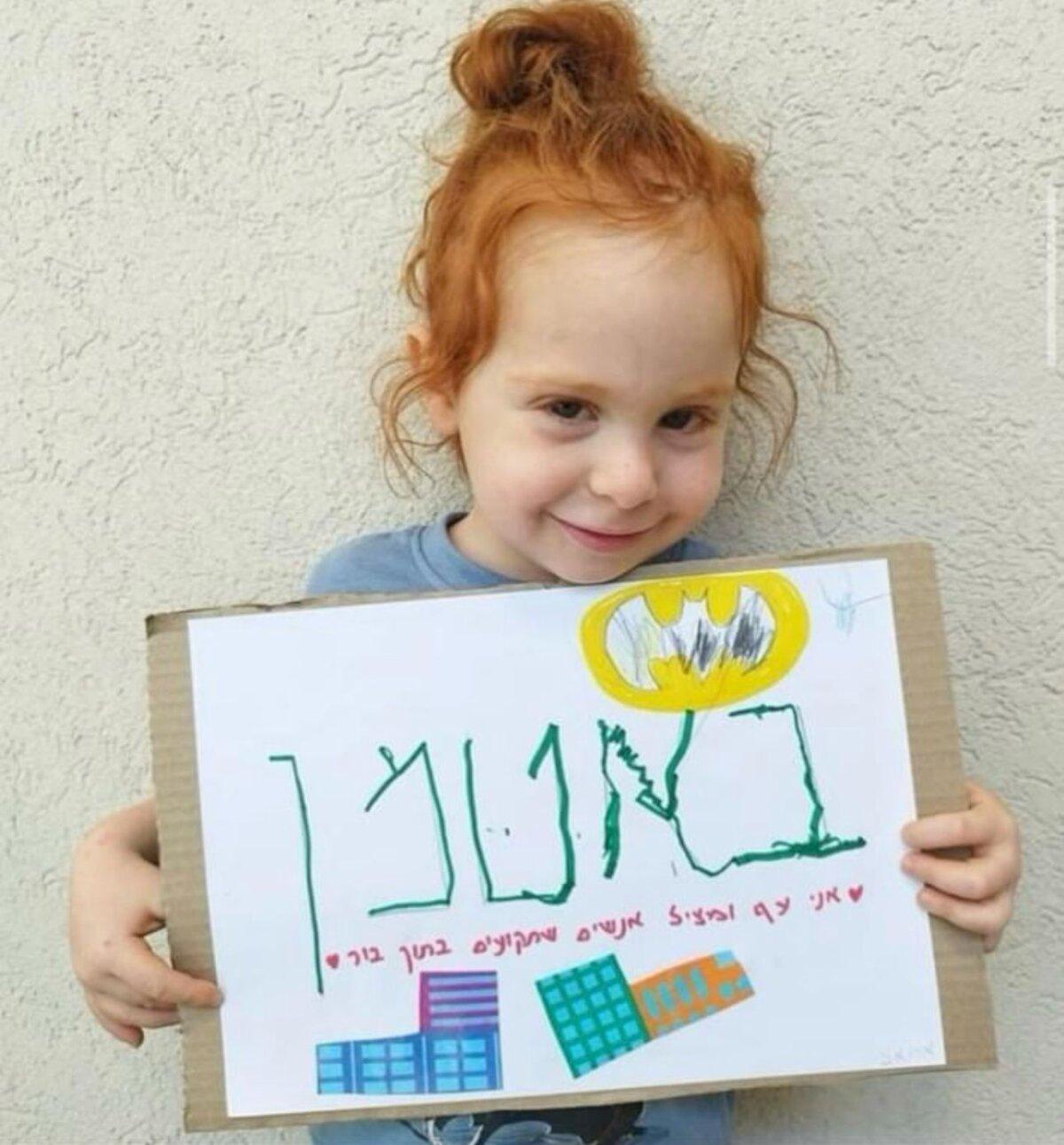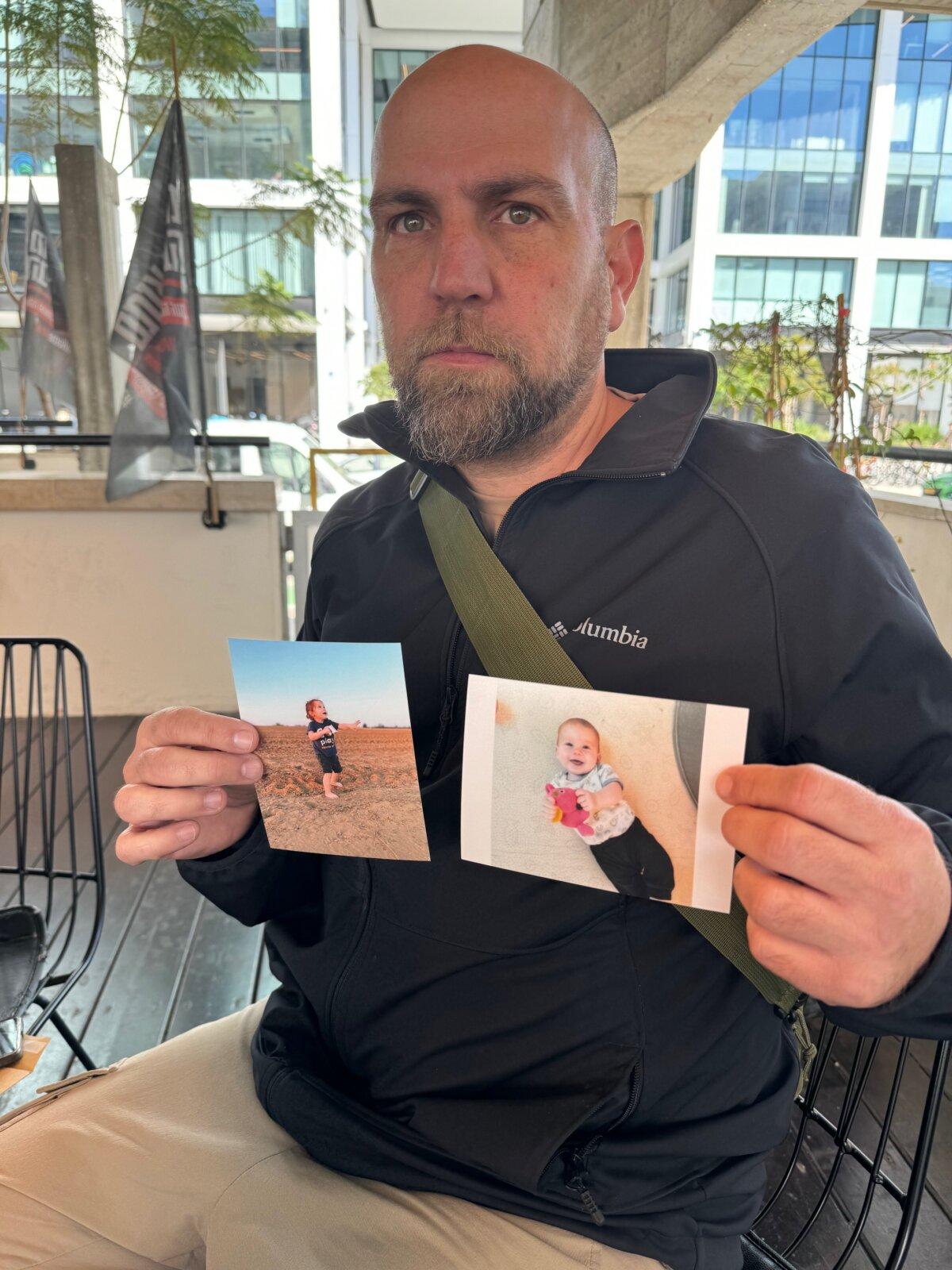Israeli Holds onto Hope that Kidnapped Family Members, Including Infant, are Alive
In an interview, a cousin expressed frustration at the world’s ignorance of Hamas’s harsh treatment of Israeli hostages.
TEL AVIV—Kfir Bibas, if he’s still alive, is known as the most famous baby globally.
At the age of 9 months, he was taken captive by Hamas terrorists along with his parents and brother.
His first birthday was celebrated in captivity, making him the youngest hostage taken that day.
The family’s grandparents were also caught in the attack, with their bodies found in Gaza two weeks later.
Shiri Bibas’s cousin, Yosi Shnaider, described how he discovered his relatives had been taken hostage through social media posts by Hamas.
He realized they were still at the kibbutz when Hamas broadcasted a video just a couple of minutes post-kidnapping.
He expressed skepticism about Hamas’s claim of their death, as other released hostages reported they were alive, with the last sighting being in a video at the end of a ceasefire.
Shnaider’s hope persists for their survival, contrasting the belief held by the Family Center that hostages are alive unless officially declared otherwise by the state of Israel.
He speculates that Hamas may hold them for their symbolic value, given their high-profile status as hostages.

He speculates on Hamas’s motive for declaring them dead during the ceasefire, suggesting it was a ploy to push the ceasefire forward.
Shnaider questions the fairness of Israel being blamed for such incidents, especially considering the atrocities committed elsewhere without as much global outcry.
He emphasizes the need for the world to acknowledge and condemn Hamas’s actions, which continue to escalate.

He criticizes world organizations for their silence on such issues, particularly women’s and children’s rights groups.
Shnaider calls for a more active stance to address the injustices and atrocities being perpetuated.
He also cautions about the potential catastrophic consequences of allowing such crimes to go unpunished and urges the world to take a more decisive stance against Hamas and similar radical groups.
He highlights the importance of acknowledging and confronting such crimes to prevent future tragedies.
Shnaider expresses frustration at the lack of international condemnation and action against Hamas, emphasizing the need for decisive measures before the situation worsens.
He emphasizes the urgency of addressing these issues before they escalate further, endangering more lives globally.
He points out the necessity of taking a stand against such atrocities to prevent them from spreading to other parts of the world.
Shnaider discusses the challenges of dealing with Hamas and the importance of international solidarity in condemning their actions.
He highlights the urgency of addressing these issues before they escalate further, endangering more lives globally.
He expresses concerns about the misuse of humanitarian aid by Hamas and calls for a more cautious approach in dealing with such radical groups.
He points out the need for a more strategic approach in tackling such issues to prevent future tragedies and protect innocent lives.
He urges the world to take a united stand against such acts of violence and prevent further atrocities from occurring.





